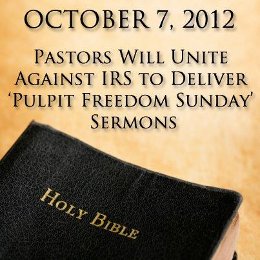An unusual method of tax resistance is to deliberately make yourself taxable in order to owe a tax that you can then resist, or, similarly, to defy some legal condition of your tax-exempt status. For example:
- Anne Cobden Sanderson of the Women’s Tax Resistance League said that
while only some women were subjected to the income tax and could join the
resistance to that tax, “Everyone who perhaps has not an income to be
taxed can have a dog, and then refuse to pay tax.” The
New York Sun editorialized:
By buying up dogs of all sorts and refusing to pay the licenses the suffragettes may get into jail with facility and honor. Why place a bomb on the front porch or spread carbolic acid in a mail box, when you may get jugged just as well merely by refusing to pay your dog tax?
If one dog sent you to prison for one month, how many months would you be forced to serve if you owned 100 or 200 dogs? Meanwhile you might put on all the dogs blankets inscribed “Votes for Women” and turn them loose in the Strand to the confusion of the bobbies and Parliament.
- For the last several years, a number of American church leaders have made explicit political endorsements from the pulpit — and have even taped these endorsements and sent them in to the government as proof. In the United States, tax exempt organizations are not permitted to engage in politics in that way. The churches are daring the IRS to take away the tax exemption from their churches, and have framed it as a freedom-of-speech/freedom-of-religion issue. Over the last several years, the number of participating churches has risen from a few dozen to over a thousand, but the IRS has yet to take up their challenge.
- War tax resister Ed Hedemann suggests that people in the United States who do not owe income taxes (because their income is too low), but who want to be income tax resisters, deliberately inflate their declared income with “phantom income” so that they owe some small amount that they can then resist.
The legal conditions of tax-exempt, non-profit status in the United States have proven to be a powerful way for the government to make activist groups timid. Anti-abortion tax resister Jerry DePyper noted that this was a big reason why he was making no headway in trying to get the tax resistance tactic on the agenda of the large anti-abortion groups. “[N]o recognized pro-life leader would want to risk it,” he says, “because of the legal issues with the IRS, and they don’t want to lose their tax exempt status.”
Ruth Benn of the National War Tax Resistance Coordinating Committee had a similar experience:
I was talking about a potential [war tax resistance] workshop with a group for which I have great respect and who are very supportive of war tax resistance. When I suggested a certain activity as part of the workshop, the organizer hurriedly said, “Oh, no, we couldn’t sponsor that; we’re 501(c)3 [the section of the legal code that governs tax-exempt non-profits].”
For this and related reasons, tax resisting groups like the Catholic Worker and NWTRCC have never tried to apply for tax-exempt non-profit status. In the IRS told the Catholic Worker that it owed some $300,000 in taxes and penalties because of this (though it eventually backed down and acknowledged that the group was a de facto non-profit charity, even if it was never going to fill out the de jure paperwork). This turned out to be a good propaganda opportunity for the Catholic Worker. The New York Times editorialized:
Surely the IRS must have genuine frauds to investigate. Surely there must be some worthwhile work this agency could be doing instead of obstructing acts of corporal mercy for the poor.
Dorothy Day added:
The New York evening Post also editorialized on our situation. The National Catholic Reporter and the Commonweal editors also registered their protest and other papers followed suit. Letters come in daily from our friends, reassuring, comforting, indignant at the government, a few of them indignant at us, that we cause them so much worry. …
…[T]he CW refuses to pay taxes, or to “structure itself” so as to be exempt from taxes. We are afraid of that word “structure.” We refuse to become a “corporation.” … [W]e do not intend to “incorporate” the Catholic Worker movement.

